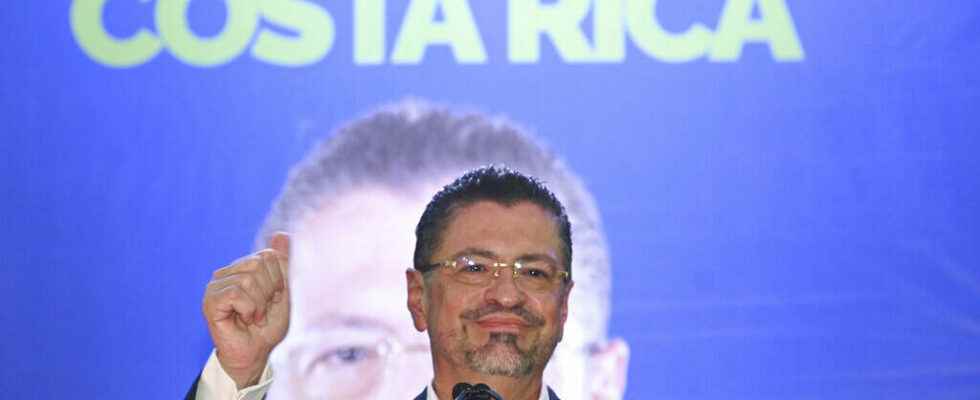The candidate of the new social-democratic progress party won the second round of the presidential election on 3rd April with 52.9% of the vote against the representative of the national liberation party and ex-president, José Maria Figueres.
With our correspondent in the region, Gwendolina Duval
At 60, Rodrigo Chavez, a former World Bank executive, becomes Costa Rica’s 49th president. The centrist candidate José Maria Figueres recognized the victory of the PPSD candidate who won 52.9% of the vote, against 47.1% for the former president of Costa Rica between 1994 and 1998.
This second round of the presidential election, which took place because none of the candidates had obtained 40% in the 1st round, took place without incident. It is without arousing great enthusiasm that the Costa Ricans have chosen a controversial candidate. The Supreme Electoral Tribunal formalized the results and recorded a turnout of 57.15%.
” I receive with the deepest humility this sacred decision of the Costa Rican people (…) This result is for me neither a medal nor a trophy, but an enormous responsibility “, he declared after the announcement of the results.
Rodrigo Chaves, the outsider turned president
Rodrigo Chaves, an economist who walked out of the outgoing government’s finance ministry after just 180 days, had a meteoric trajectory during the election campaign. Qualified as an outsider in the first round on February 6 at the head of the brand new Parti Progrès Social Démocratique (PPSD), he quickly rose in the polls during the two months between the two rounds.
Rodrigo Chaves was finally elected after a populist campaign during which he never stopped attacking political politics and expressing his desire to stand out from the traditional parties of which his opponent José Maria Figueres was a representative.
However, the new president will not have a majority in Parliament and will have to deal with the other parties.
The many projects of a controversial president
Its program focuses largely on the economy of Costa Rica. It is about relaunching it after the difficulties encountered by the tourism sector during the pandemic. The challenges of the new president-elect will consist, among other things, of reducing an external debt equivalent to 70% of GDP, lowering a poverty rate which is around 23% and creating new jobs to stem the increase in unemployment which has now reached 14%.
The impacts of an economic crisis that Rodrigo Chavez, Minister of Finance for six months in the outgoing government after having occupied several posts at the World Bank, will have to take up. It is moreover within the international financial organization that he was accused and sanctioned for acts of sexual harassment against two collaborators between 2008 and 2013. His candidacy for the Presidency aroused the indignation of many Costa Rican women.
